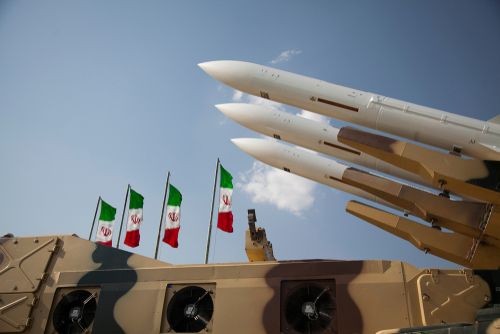Protests continue in Iran
Popular protests about human rights violations and sanctions continue in Iran, writes Ahmad Abdul-Rahman
In recent months, waves of popular protests have escalated in Iran. Some protests are related to the harsh economic conditions, principally as a result of sanctions, and are directed against the Iranian regime. Other protests are linked to human rights that are replete with violation. In turn, they are linked to US sanctions.
These sanctions are not connected with the nuclear agreement, however. Therefore, protests will continue even if this nuclear agreement is revived.
The latest reports against human rights in Iran were from "Human Rights Watch". It referred to the Iranian authorities' arrest of several activists in relation to forming an assembly or group and ongoing protests in several cities following the price hike on May 6.
Since the protests began, the government has severely blocked internet access in several provinces, and a number of videos circulated on social media sites show the use of tear gas.
The sanctions on Iran in the context of human rights was one of the tools that US administrations have sought to employ to put pressure on Tehran. Washington has enacted several laws aimed at either expanding the scope and freedom of using the internet, imposing sanctions on companies that sell equipment to Iran that enable it to restrict citizens' use of the internet, or selling weapons used by security authorities to suppress demonstrations.
US policy and legislation since the Iranian election-related uprising of June 12, 2009 has sought to support the ability of Iran's domestic opposition to punish officials and institutions, such as Iran's Revolutionary Guard, for its involvement in human rights abuses. The US administration has also sought to sanction individuals and certain entities under executive orders and provisions that prohibit the granting of visas to enter the US, under the provisions of the Comprehensive Iran Act -sanctions, accountability, divestments (CISAD), especially Article 106. This article states: "The US government prohibits dealing with foreign companies that sell to Iran technology that it can use in monitoring or controlling the use of the Internet." Accordingly, rulings were brought against "Nokia" (Finland) and "Siemens" (Germany), for selling Internet monitoring tools and technology to Iran in 2008.
The VOICE law, which deals with victims of Iranian censorship, also contained provisions to "blacklist companies that sell to Tehran technological equipment with which they can control Iranians' use of the Internet."
Certain laws have also prohibited entry into the US, and prohibited any US trade with persons and entities that are proven to operate technology that allows the Iranian or Syrian government to disrupt, monitor, or track computer use by citizens of those countries or assist them in these disturbances or surveillance, or equipment riot control.
Also, Section 105 of the CISADA Act, imposes visa bans on US property for any person or company that sells Iranian government goods, or technologies that it could use to commit human rights abuses, such as firearms, rubber bullets, police batons, and chemical sprays, or pepper, detonators, or grenades, tear gas, water cannons, and the like of goods. In addition, sanctions are imposed on anyone who sold such equipment to Iran's Revolutionary Guards.
However, Iran does not worry much about the impact of these sanctions, which mainly means sanctions related to the economy. Hence, the nuclear agreement was linked to economic sanctions, including its export of energy, and financial institutions. Therefore, the latest sanctions are not expected to have much effect in pressuring the Iranian regime
Over the past four years, there have been widespread protests over the deteriorating economy. Protests and strikes organized by the country's major unions have increased in response to deteriorating living standards. Security forces usually respond to these protests with excessive force, often resulting in deaths and arrests of thousands of protesters, as well as using prosecution and imprisonment on illegal charges as a primary tool to silence dissidents and human rights defenders. The authorities have shown no willingness to investigate the serious human rights violations committed under their control.


Comments